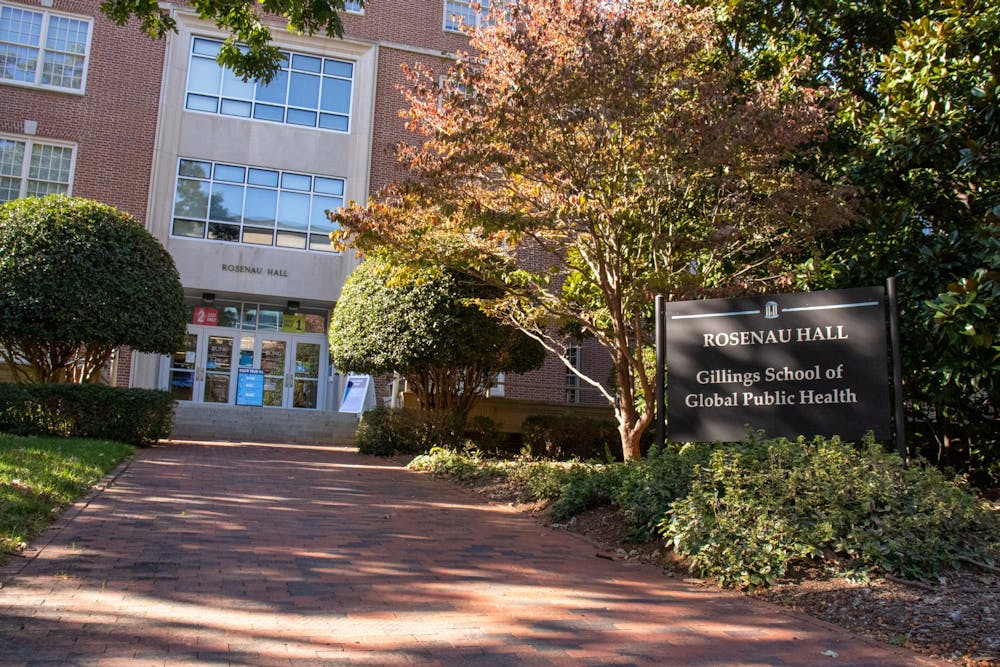During a pandemic, life imitates public health curriculum.
Infectious disease research has garnered interest from students both inside and outside the classroom. And for the Gillings School of Global Public Health, increased interest means the creation of course content based on COVID-19, additional research and a heightened amount of students applying to and enrolling in the public health school.
Laura Linnan, senior associate dean of academic and student affairs, said when the pandemic struck, the school faced the same sorts of challenges as the rest of the University. She said they took time over the summer to plan what courses would look like and offer more training for faculty.
“We also have at least three classes that I know that are all about the pandemic,” Linnan said. “I mean, we're in public health. So this is our business, right, the whole pandemic.”
Linnan said the increased focus on public health due to the pandemic has already caused an increase in rolling admission applications to the school’s online master’s in public health program — which they see as a predictor for an increase in the program's undergraduate applications.
“There's so much in the media right now about public health and public health training,” Linnan said. “People are actually learning what public health is, and how it's different than, for example, being a doctor or a nurse or some of the other health professions — that public health is its own profession.”
Penny Gordon-Larsen, associate dean for research, said the school has always had a research focus on pandemics and coronavirus, but work has been elevated since the onset of the COVID-19 pandemic.
“Basically, everyone who was already working in infectious disease or coronavirus is incredibly busy,” Gordon-Larsen said. “They are working just incredible hours with an incredible amount of dedication, not just on the research, but also on media and other engagement to get the word out and to help the state and help the world.”
Additionally, Gordon-Larsen said researchers who are not traditionally focused on infectious disease are working on strategies to use their work to combat the pandemic.




